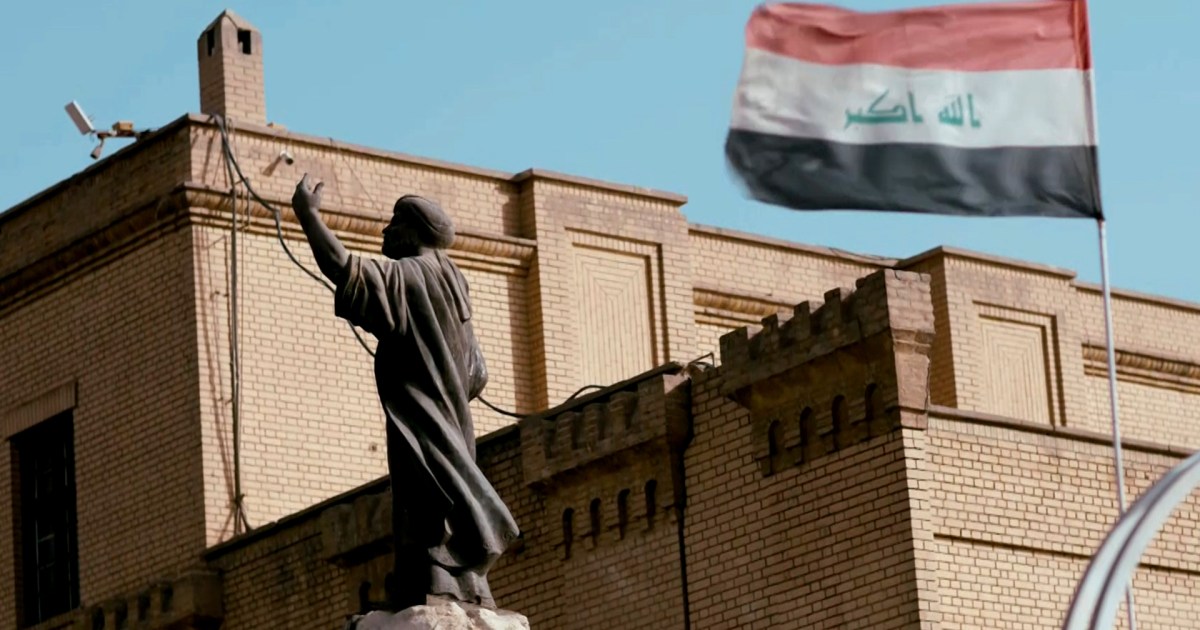The detective program tried to obtain answers to many questions about Iraqi officials' visits to Tel Aviv and the mutual accusations between political parties of those who seek normalization and those who fight it.
The program returned to the roots of the controversy that has raged for years on the street, inside parliament and parties. It also interrogated personalities who hold political positions now and in the past, whether in the Baghdad government or in the Kurdistan Regional Government.
Returning to the historical context, the Iraqi writer and historian Shamil Abdel Qader pointed out that Israel believes that the oldest Jews of the land are from Iraq and they are their first ancestors, indicating that there is social sympathy with him, but he rejects diplomatic relations with Israel.
Efforts for rapprochement between Iraq and Israel escalated. Since 2018, the Israeli Foreign Ministry launched a page on Iraq, and the steps followed quickly, as Israel allowed trade exchange with Iraq and officially revealed visits by Iraqi delegations to Tel Aviv.
Regarding the formalization of normalization in Iraq or not, Bahar al-Araji, the former Iraqi deputy prime minister, said that normalization began in Iraq, but unofficially, and said that there are external parties that pave the way for normalization, by creating difficult social and economic conditions for the Iraqi people to force the Iraqi people to go to the option of normalization. ?
Exclusive Interviews
The program team was also able to conduct an interview with the leader of the Asa’ib Ahl al-Haq movement, Qais al-Khazali - who stipulated that the filming be through a team and their own equipment for security reasons - and who said that there is an effort to find differences within the Shiite-Shiite situation in order to be able to advance in the normalization project.
Khazali stressed that without Iraq, the normalization project cannot succeed, considering that the Israeli entity is betting heavily on the Kurdistan region, as Erbil has become an advanced area of operations.
He revealed that he has detailed information about the locations of the Mossad in Erbil, stressing that the Israeli presence includes Baghdad, Basra, Nineveh and Anbar under the cover of civil society institutions, security companies or specific people.
In an interview with the program, the official spokesman for the Kurdistan Regional Government, Gutiar Adel, denied the region’s sale of oil to Israel, noting that the recent Iranian attack, which targeted a civilian building, according to him, was investigated by a committee that confirmed the absence of Israeli headquarters in the region, as Tehran claimed. .
Regarding the transparency of this investigation, Khazali said that it was not professional and responsible, stressing the availability of information indicating the presence of dead and wounded people at the scene, who were transferred directly by plane from Erbil to Israel.
In the sequence of historical events, the program followed the event of September 24, 2021, as Iraq was on a date with an event that sparked controversy, which is the Peace and Recovery Conference in Erbil organized by the American Peace Communications Center, in which Iraq demanded to join the Abraham peace agreement with Israel, Which sparked a storm of political reactions and denunciation from the regional government and the center.
With regard to the country’s official position, Talal Al-Hariri, a member of the American Peace Communications Center, explained that all the attendees were aware of the conference’s agenda and supported peace and normalization, but he was surprised after the attack on the conference that the Iraqi Kurdistan government later denied knowledge of the conference’s agenda, rejecting all accounts that talk about secret relations linking it Tel Aviv.
In turn, former Iraqi Parliament Speaker Mahmoud al-Mashhadani saw that Iraq is still under occupation, while the Israeli Mossad is spreading in Baghdad through the British and American embassies, considering also that those who have relations with the UAE have doubts about their participation in the normalization project.

